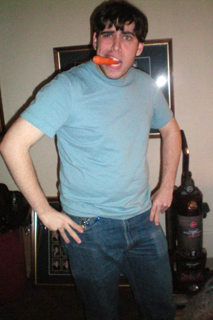
The Introduction To The Blog Blog
Welcome, welcome, welcome. Yes, welcome to my blog…again! For you see, this is not the first time I have treated my oh so attractive readers with such generosity that is currently happening and is about to follow. I gave you a great six mini blogs for the price of one deal before and feel you deserve the privilege yet again. I’m like a Groupon. Or perhaps, a Jewpon if you will. And oh, I will. Now this first blog serves as a sort of introduction to the rest of said blogs and some of them can be a doozy. Here, a doozy is a synonym for wonderfully hilarious, entertaining and yet poignant. Although if you don’t like them, then here a doozy is a synonym for “not written by Adam Daniel Miller”. I think that’s enough bad humor for the introduction to the blog blog. I’ll save the rest for the other five. Enjoy!
The Little Things I Miss About Israel Blog
I had the wonderful privilege of going on Birthright earlier this year through Shorashim and as I always say, it was the ten best consecutive days of my life. It’s been close to a year since I was there and I wanted to share some of what I miss most about Israel. Enjoy.
Chocolate milk in a bag: My goodness how I miss this. I miss it so much I’ve started to fill up as many Ziploc bags as I can find with chocolate milk. I’ve even started my own ‘chocolate milk in a bag’ business. It’s called….Chocolate Milk In A Bag: A Business.
The Ability To Say Shabbat Shalom To Almost Anyone: In Chicago, and the rest of the United States for that matter, I feel that I can pick out my fellow Jews pretty well. (It’s not that difficult to spot attractive people.) However, in the rare cases I assume incorrectly, well, I simply feel foolish. I suppose it is my fault as you know what they say when you assume. The say you make an incorrect assumption sometimes and that’s never a good thing.
Roundabouts: You know the big ‘ol intersections that are just big circles instead of traffic lights? Of course you do. There’s something a lot more fun about these and while there are some in the Chicagoland area, in Israel, you can find them in abundance. Hence, when I find one around here, I tend to drive around in circles for about three to four hours. Oh memories.
The Views: In Israel, every single view, no matter where you are, is incredible. Seriously, no matter where my eyes would wander, it was always spectacular. Even looking straight down at my feet was majestic. You know why? Because my feet were in Israel.
The Things I Like Blog
Hi. I like to be positive about life, so here’s a list of things I like. Enjoy.
Being Jewish, Portillo's chocolate cake shakes, the Peoplemover, being a slightly ambidextrous lefty, calculators, Monopoly, the word 'quite', mirrors, SUBLTY!!!!, rhinoceroses, model trains, k'nex, the letter R, the Muppets, pants straight out of the dryer, old Mad Libs, cinnamon ice cream, the IDF and all the wonderful friends I have that have served, I live very near to Wrigley Field, seeing my siblings, ok my parents too, ok all of my family as well, Chipotle with Cholula, ice cream snickers, postseason sports, people who are utterly fascinated by magic, my nickname ‘Jewbear’, unexpected fun late nights, the Chicago skyline, muscle soreness from exercise (I get this one about twice a year), the fact that you are enjoying reading this…I hope, live television, The Daily Show, Pancheros chips and salsa, the sense memory that comes with smell, British accents, Spaghettios, a cool pillow, making silly voices, not as popular movies, how attractive you are, writing, gummy sharks and coca-cola bottles, good craft beer, writing (needed to be said twice), the perfect amount of sleep, satire, parody, cool calm nights, time to myself, the past, the future, presents, cake.
That was silly. But seriously, I like cake. Moving on.
The Excitement of Jewish Holidays Blog
As I’ve pointed out before, I love my Jewish holidays. In and of themselves, they are exciting no matter what, but what I want to talk about here is something that is often over looked as to why, fundamentally, they are in fact so exciting. It’s a simple truth that the Jewish calendar is a lunar one. The significance of this you ask? Well I’ll tell you. Every year is different and exciting and spontaneous and awesome. That’s what a lunar calendar does. No two years are the same! Sometimes Hannukah can be as late as early January and sometimes as early as late November. You never know! We always have to be on our toes and it keeps the relationship I have with these holidays very refreshing. Like a Junior Mint. Others should be jealous. Really, they should be.
I also love the sundown to sundown timing we got going on. Again, it’s a lunar thing that makes it so fantastic where all of the holidays we have feel longer than they actually are. Now the ones that last a technical 24 hours feel like they’re two days long instead. It gives the perfect illusion of maximizing our holiday celebrations. Which leads to my final point. We have Shabbat. We have a special holiday that gives us a weekly excuse to get together with friends and family and have a good if not great time. Some of my best Jewish experiences have revolved around Shabbat and I get a crack at it once every seven days. Everyone should be so lucky.
The Jewish holidays are so plentiful and often and spontaneous, that to help us out there is even a special site simply called “Is It A Jewish Holiday Today?” If you are unsure if today is a Jewish holiday of some kind, give it a look. If it’s a no, just wait until sundown and try again.
golB sdarwkcaB ehT (If you get through this one, you are amazing)
.yaw taht ti epyt ot woh wonk t’ndid I tub ,nwod edispu siht etorw osla I ,tsiwt a ni worht ot tsuJ .won werbeH emos daer ot tnaw yllaer I .esoppus I gniht golb sdarwkcab elohw siht ot tnoip hcum toN .dne eht si siht ,yakO .dne eht litnu esualppa ruoy dloh ,esaelP .wonk I tnaillirB !hsilgnE ni tuB !werbeH gnidaer ekil tsuj eb lliw ti taht si golb sdarwkcab a gnivah rof nosaer suoivbo erom eht utB .repap no yllanigiro siht gnitirw gnitarebil os tlef tI .siht fo esuaceb mlap dna yknip ym no segdums teg I efil ym llA .ytfel a m’I ,tsriF .snosaer fo elpuoc a rof pu ssap ot aedi na fo doog oot tsuj si golb sdarwkcab eht fo aedi ehT
The Call Your Mother Blog
So here’s the deal. This was originally going to be a blog about doing little every day mitzvahs, but it evolved in my head into this. Enjoy.
You should call your mother.
Oy! You should really give her a call. You know she loves you and she misses you and she worries about you. What? Are your fingers broken? Can’t you dial a phone? Even if you can’t, most phones these days have voice dialing, so what? Is your voice broken? Can’t you at least say Mom one time? I know, I know, you want your space and she wants to give it to you but would it kill you to give her a call just once a week? She just wants to know how you are. If you’re eating well. When she can expect those Jewish grandkids. Nothing too personal. Oh, stop. She doesn’t ask too many questions. She asks just the right amount of questions. Maybe if you called more often all these questions wouldn’t be piling up. Did you ever think about that? Hmmmm?? And you never come to visit! Always you are busy with this and that and the other and never any time for your mother. The woman who gave birth to you. Who suffered through 14 hours of labor for you. Yes, you need the reminder. You know you were no peach when you were born, right? And this is how you repay her? So pick up the phone, give her a call. Make her day. It is practically the mitzvah of mitzvahs. She tells all her Mahj friends every week how wonderful you are so you shouldn’t disappoint her. In fact, give her a call when she is with her Mahj friends. It will make you the poster child for poster children who call their mothers. And believe me, your mother loves to kvell over you. Just thinking about it is getting me verklempt.
Hi Mom. Thank you for reading and supporting me with all my writing. You’re the best and I love you. I might even call you next week. During Mahj. I know, I’m such a mensch.



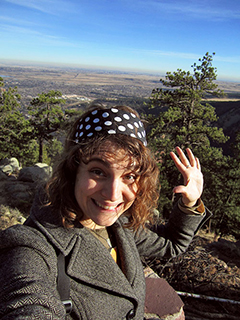
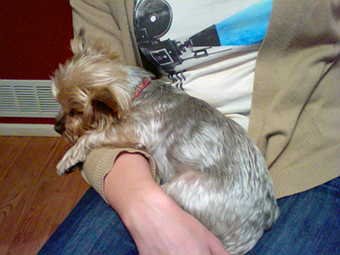
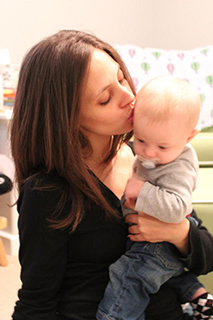


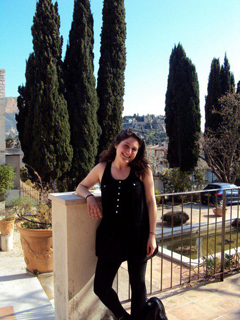
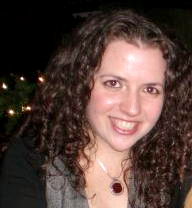
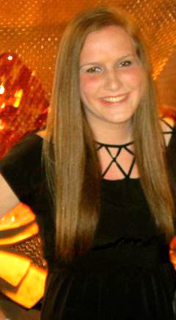

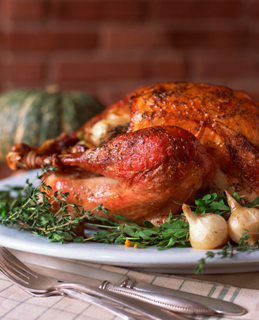
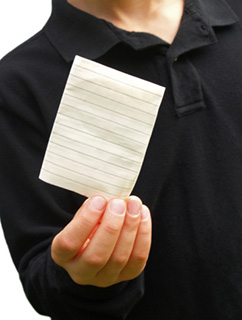

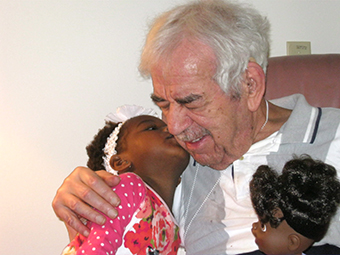


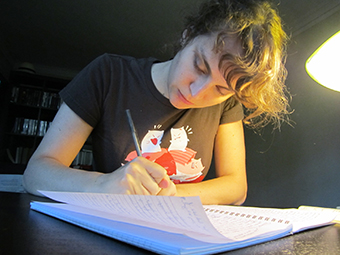

.jpg)



